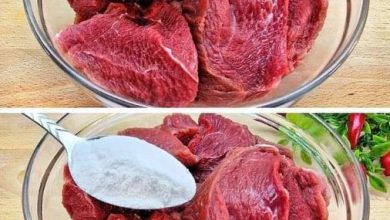Looking for a soothing, natural way to enhance your daily wellness routine? Mango leaf and clove tea, a traditional herbal blend, is gaining popularity among health-conscious Americans for its potential to support digestion, immunity, and overall vitality. This aromatic tea combines the nutrient-rich leaves of the mango tree with the warming spice of cloves, offering a gentle boost to your well-being. In this article, we’ll explore the potential benefits of mango leaf and clove tea, how to make it at home, and what science says about its effects. Let’s sip into this herbal remedy and discover how it can fit into your healthy lifestyle!
What Is Mango Leaf and Clove Tea?
Mango leaf and clove tea is a herbal infusion made by steeping dried mango leaves (Mangifera indica) and whole or ground cloves (Syzygium aromaticum) in hot water. Mango leaves, often overlooked compared to the fruit, are rich in antioxidants, vitamins, and phenolic compounds, and have been used in Ayurvedic and traditional African medicine for centuries. Cloves, known for their warm, spicy flavor, add eugenol and other bioactive compounds that complement the leaves’ benefits. Together, they create a fragrant, caffeine-free tea that’s easy to prepare and aligns with a natural approach to wellness.
Why Mango Leaf and Clove Tea Supports Wellness

This tea’s appeal lies in its blend of plant-based compounds that may address common health goals, such as better digestion, stronger immunity, and balanced energy. Mango leaves contain mangiferin, a polyphenol with antioxidant and anti-inflammatory properties, while cloves offer antimicrobial and digestive benefits. Trusted sources like WebMD and Harvard Health highlight the role of antioxidant-rich herbs in supporting overall health, making this tea a promising addition to a balanced lifestyle. Let’s dive into the specific benefits that make this herbal blend stand out.
Potential Benefits of Mango Leaf and Clove Tea

The combination of mango leaves and cloves offers several potential health benefits, supported by traditional use and emerging research. Here are five key ways this tea may gently support your daily wellness.
1. May Promote Healthy Digestion
Mango leaves have been traditionally used to ease digestive discomfort, and cloves are known for stimulating digestive enzymes. A 2020 study in Journal of Ethnopharmacology found that mango leaf extracts improved gut motility in animal models, while a 2019 review in Food Chemistry noted cloves’ ability to reduce bloating. Sipping this tea may help soothe your stomach after meals.
2. Supports Immune Health
Both mango leaves and cloves are rich in antioxidants, which may help protect cells from oxidative stress and support immune function. A 2021 study in Antioxidants highlighted mangiferin’s role in modulating immune responses, and cloves’ eugenol has antimicrobial properties, per a 2018 study in Frontiers in Microbiology. This tea could be a comforting ally during cold season.
3. May Help Manage Blood Sugar
Mango leaves may support balanced blood sugar levels, a key factor in daily energy and wellness. A 2017 study in Phytotherapy Research found that mango leaf extract improved insulin sensitivity in animal models. Cloves may also contribute by slowing carbohydrate absorption, as noted in a 2020 Journal of Medicinal Food study, making this tea a potential aid for stable energy.
4. Provides Anti-Inflammatory Benefits
The polyphenols in mango leaves and eugenol in cloves have anti-inflammatory properties that may reduce inflammation in the body. A 2022 review in Nutrients noted that mangiferin helps lower inflammatory markers, which could support joint health and overall comfort. This makes the tea a soothing choice for those seeking natural inflammation support.
5. May Support Oral Health
Cloves are widely recognized for their oral health benefits, often used to ease tooth discomfort and freshen breath. A 2019 study in Journal of Dentistry confirmed that clove oil’s antimicrobial properties help reduce oral bacteria. Paired with mango leaves’ antioxidants, this tea may promote a healthy mouth environment when consumed regularly.
How to Make Mango Leaf and Clove Tea at Home

Preparing mango leaf and clove tea is simple and requires just a few ingredients. Here’s a beginner-friendly recipe to get you started, along with tips for the best results.
Mango Leaf and Clove Tea Recipe (Serves 1–2):
- Ingredients:
- 2–3 dried mango leaves (or 4–5 fresh, thoroughly washed)
- 3–4 whole cloves (or ¼ tsp ground cloves)
- 2 cups water
- Optional: 1 tsp honey or a slice of lemon for flavor
- Instructions:
- Rinse dried or fresh mango leaves to remove any dust or debris.
- Bring 2 cups of water to a boil in a small saucepan.
- Add the mango leaves and cloves, then reduce to a simmer for 10–15 minutes to release the flavors.
- Remove from heat, strain the tea into a cup, and discard the leaves and cloves.
- Add honey or lemon if desired, and enjoy warm.
- Store any leftover tea in the fridge for up to 24 hours; reheat gently before drinking.
Tips for the Best Tea:
- Source dried mango leaves from reputable herbal retailers or use leaves from a pesticide-free mango tree.
- Use whole cloves for a milder flavor, or ground cloves for a stronger taste, but adjust to avoid overpowering the tea.
- Start with a small cup (8 oz) to assess tolerance, especially if you’re new to herbal teas.
- Brew fresh tea daily for maximum potency and flavor.
Safety Considerations for Mango Leaf and Clove Tea

While mango leaf and clove tea is generally safe for most adults when consumed in moderation, there are a few precautions to ensure it’s right for you.
- Moderation Is Key: Overconsuming mango leaves may cause digestive upset due to their tannin content. Stick to 1–2 cups daily, as suggested by a 2021 WebMD article on herbal teas.
- Medication Interactions: Mango leaves may lower blood sugar, potentially interacting with diabetes medications, and cloves may affect blood thinners. A 2022 Harvard Health article advises consulting a doctor if you’re on these drugs.
- Allergies: Some people may be allergic to mango leaves (especially those sensitive to mango fruit or sap) or cloves. Stop use and seek medical advice if you experience rash, itching, or swelling, per Mayo Clinic guidance.
- Pregnancy and Breastfeeding: Limited data exists on the safety of mango leaves during pregnancy or breastfeeding. Avoid use unless cleared by a healthcare provider, as noted in a 2020 health review.
Always consult your healthcare provider before adding mango leaf and clove tea to your routine, especially if you have chronic conditions or take medications.
Tips for Incorporating Mango Leaf and Clove Tea into Your Routine
Making this tea a daily habit is easy with a little planning. Here are five practical ways to enjoy it consistently:
- Morning Ritual: Start your day with a warm cup of mango leaf and clove tea to support digestion and energy.
- Post-Meal Soother: Sip the tea after lunch or dinner to ease bloating and promote gut comfort.
- Seasonal Support: Keep a batch of dried mango leaves and cloves on hand for extra immune support during cold or allergy seasons.
- Flavor Twist: Experiment by adding a cinnamon stick or ginger slice to the tea for variety and added warmth.
- Relaxation Aid: Enjoy a cup in the evening as part of a calming bedtime routine, pairing it with deep breathing or light stretching.
Have you tried mango leaf and clove tea yet? Share your favorite way to brew it or your go-to wellness tip in the comments below, or pass this article to a friend who loves natural remedies!
Why Mango Leaf and Clove Tea Is a Wellness Gem
Mango leaf and clove tea stands out for its blend of tradition and science, offering a gentle, natural way to support daily wellness. Its affordability, simplicity, and soothing flavor make it accessible to anyone looking to enhance their health without complex regimens. Unlike sugary drinks or processed beverages, this tea delivers plant-based benefits that align with a holistic approach to well-being.
Research from sources like Journal of Ethnopharmacology and Nutrients supports the antioxidant and anti-inflammatory properties of mango leaves and cloves, while their cultural use in herbal medicine adds depth to their appeal. While not a cure-all, this tea can complement a balanced lifestyle focused on digestion, immunity, and vitality.
Final Thoughts
Mango leaf and clove tea is a gentle, flavorful way to support your daily wellness, offering potential benefits for digestion, immunity, and more. With its easy preparation and natural ingredients, this herbal blend is a perfect addition to a health-conscious routine. Whether you sip it for its soothing warmth or its nutrient-packed profile, this tea is a small step toward a healthier you. Explore more wellness tips on our site, and let us know how mango leaf and clove tea fits into your day in the comments!
Disclaimer: This article is for informational purposes only and does not substitute professional medical advice. Consult your doctor before making health changes.







